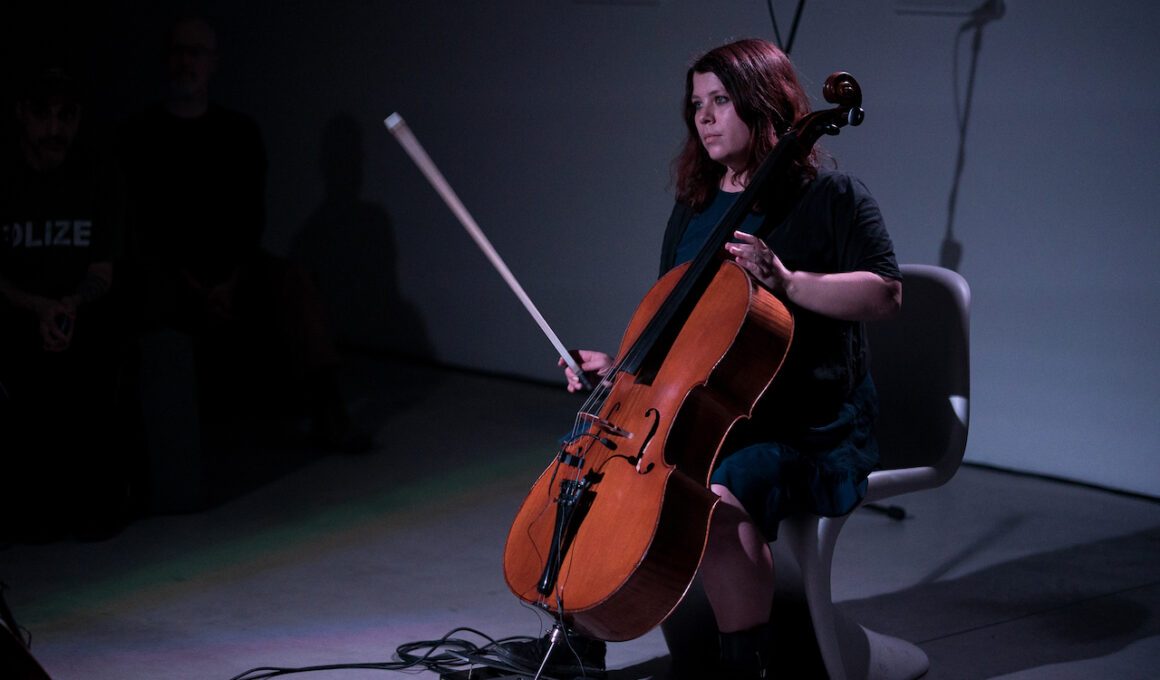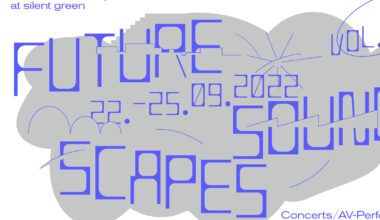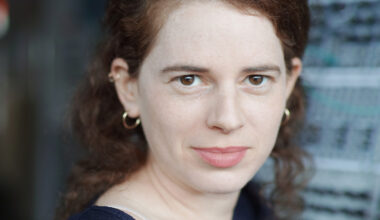Judith Hamann is a cellist and performer/composer from Naarm/Melbourne. They have “long been recognised as one of Australia’s foremost contemporary-music cellists” (RealTime Arts), and as a composer who “destroys the fiction of the musician who lives and works outside conventional parameters and puts in its place a series of compositions that are fundamentally humane” (WIRE). Their work encompasses performance, improvisation, electro-acoustic composition, site specific generative work, and micro-tonal systems in a process based creative practice.
Judith likes working with and thinking-with other artists which has sometimes included people like Marja Ahti, Oren Ambarchi, Dennis Cooper, Charles Curtis, Lori Goldston, Sarah Hennies, Yvette Janine Jackson, Alvin Lucier, and Éliane Radigue. Judith’s work has previously been published by labels including Blank Forms, Black Truffle, Another Timbre, and Longform Editions.
Judith will perform at our next galerie weisser elefant x Digital in Berlin session along Australian sound artist Lottie Sebes.
FACTS
1. I am terrible at answering these sorts of questions where one is meant to somehow locate a single reasonable answer, and I truly apologise in advance for making everything overly complicated.
2. One of my favourite examples of linguistic fact (as opposed to say, scientific for instance) is that this sentence is composed of words.
3. The mantis shrimp has sixteen colour receptors, can you imagine seeing like that? We only have three and things are already pretty wild.
QUESTIONS
1. What is the biggest inspiration for your music?
I suppose to answer this, maybe I have to understand a little more clearly what we are talking about when we talk about inspiration, because the word can point to so many different things, as in, which sense we’re thinking with will result in a different answer. My favourite constellation of meanings around the word forms because it has the etymological root ‘spir’ in it, which means to breathe, so I’m going to dodge here inspiration as a term with its weird connections to authorship, or control, genius, or the divine, and instead I’m going to answer the question of what makes making breathe: and I think that’s mostly relationships/relational ways of being, with sounds, beings, place, and things.
2. How and when did you get into making music?
I’ve been playing music a good while now, and the cello since I was about 12 (with a few detours and interruptions) but I’ve been pretty shy about making it in ways outside of playing/performance until over the last few years. I suppose making my own kind of work is something that has emerged slowly and organically from within a performance practice, finding its own spaces and ways to manifest as more fixed, or stable structures and processes.
3. What are 5 of your favourite albums of all time?
This kind of question is WAY too hard for me to answer! So instead I will just list the last five albums I listened to beginning to end:
Pharaoh Sanders – Karma
Eiko Ishibashi & Darin Gray – Ichida
Eius Komariah – Bulan Sapasi
Jenny Hval – Classic Objects
John Fahey – Death Chants, Breakdowns, and Military Waltzes
4. What do you associate with Berlin?
Keeping living alive despite the grey.
5. What’s your favourite place in your town?
I’m not sure what my town actually IS so it’s complicated. Right now it’s just outside Stuttgart, so in that case I’m going to have to answer: the forest. But generally my answer is wherever is near the closest large body of water.
6. If there was no music in the world, what would you do instead?
It would definitely involve spending an even larger ratio of time cooking and talking about chilis than I already do.
7. What was the last record/music you bought?
I think it was either Hantu – Zither EP or the reissue of Pauline Oliveros’ Accordion and Voice.
8. Who would you most like to collaborate with?
I feel very fortunate that I already work with many people I both adore and admire, but I’d love to cook with Ixta Belfrage, or go recording/listening with Annea Lockwood.
9. What was your best gig (as performer or spectator)?
Again so tricky! What does best mean? Maybe what I hold in my memory in the most vivid way is Akira Sakata singing with airplanes by the river in Austin for No Idea Festival, or the whole southbank centre audience leaping to their feet to dance for Selda Bağcan, but maybe my favourite performance I’ve done was actually a small house concert in Charles Curtis’ living room.
10. How important is technology to your creative process?
It used to be fairly distant to my process as a performer which was much more about bodies and physicality and phenomena and spaces, but now that I work more and more assembling recordings and generating sound electronically in digital spaces, it’s come to be something I really love, and even miss when I don’t have much time for it. Not in any gear fetish sort of way, my tools are fairly simple, but I love the worlds that it becomes possible to inhabit through them, what it’s possible to construct or reveal.
11. Please tell us, what the audience can expect from your piece you present at galerie weisser elefant x Digital in Berlin session.
I’m going to play a piece that just appeared one afternoon on the day that a friend’s coffin was being decorated, but I don’t think of this as in any way ‘sad’ music. It feels more like a gift. It’s for two cellos theoretically, but I’ll be using some electronics/playback. Expect slow moving but rich, buzzing, alive cello chord phasing.


